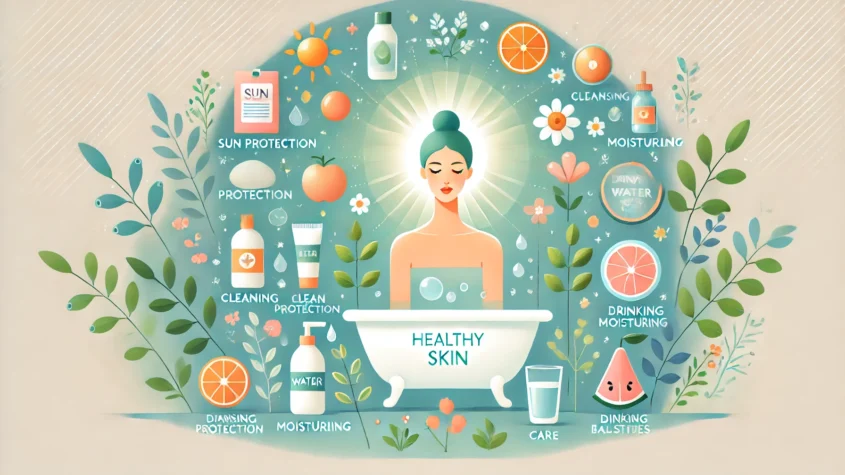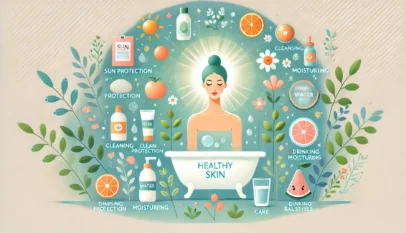Understanding Causes and Natural Prevention Strategies
White hair is a common concern that can affect individuals of various ages. Understanding the causes of white hair and exploring natural prevention methods can empower individuals to take control of their hair health. Factors such as genetics, diet, and lifestyle choices significantly influence the greying process.
Incorporating specific foods rich in vitamins and antioxidants into one’s diet can help promote natural hair color. Additionally, managing stress and avoiding harmful chemicals in hair care products play vital roles in maintaining healthy hair.
Addressing these factors not only aids in the prevention of white hair but also contributes to overall hair vitality. This blog post will explore these causes and provide practical, natural solutions for those looking to retain their youthful mane.
Understanding the Causes of White Hair
White hair often appears due to a combination of factors that can influence hair pigmentation. Genetic predisposition plays a crucial role, while lifestyle choices and environmental factors also contribute. Additionally, nutritional intake, hormonal levels, and the natural aging process significantly impact the onset of white hair.
Genetic Factors
Genetic inheritance is a primary cause of white hair. If an individual has a family history of premature graying, they are more likely to experience it themselves. Certain genes, like the Bcl2 gene, are linked to hair pigmentation. Research indicates that variations in these genes may lead to a decrease in melanin production, the pigment responsible for hair color. This genetic influence can manifest in early adulthood or even in childhood for some individuals. Understanding one’s genetic background can help in predicting the likelihood of developing white hair.
Lifestyle and Environmental Triggers
Lifestyle choices and environmental factors can accelerate the graying process. High-stress levels are known to affect overall health, potentially leading to early white hair. Exposure to environmental pollutants such as chemicals and toxins can also damage hair follicles. Smoking is another lifestyle factor linked to premature graying, as it impacts blood circulation and nutrient delivery to hair. Protecting hair from harsh conditions and managing stress through practices like mindfulness can help mitigate these effects.
Nutritional Deficiencies
A well-balanced diet is vital for maintaining healthy hair. Deficiencies in certain nutrients can lead to a reduction in melanin production. Vitamin B12, iron, and copper are essential for hair pigmentation. Low levels of these nutrients can disrupt normal hair color. Including foods rich in these vitamins and minerals—such as spinach, nuts, and eggs—can be beneficial for hair health. Supplements may also aid those unable to meet their nutritional requirements through diet alone.
Age-Related Changes
Aging is the most common cause of white hair. As people age, the hair follicles gradually produce less melanin, leading to lighter hair. By the late 30s, many may notice the first signs of graying. This process typically progresses with age, and most individuals will experience some degree of white or gray hair by their 50s. The rate of graying varies significantly among individuals, influenced by genetic and lifestyle factors. Understanding this natural process can help individuals accept and adapt to changes in their hair color.
Hormonal Imbalances
Hormonal changes can play a significant role in the graying of hair. Conditions such as thyroid disorders can lead to alterations in hair pigmentation. An underactive thyroid (hypothyroidism) or an overactive thyroid (hyperthyroidism) may affect hair health and color. Additionally, hormonal fluctuations associated with aging, pregnancy, and menopause can contribute to changes in hair pigmentation. Monitoring hormone levels and seeking appropriate medical advice may help manage these effects on hair.
Natural Prevention Strategies
Natural prevention strategies can play an essential role in maintaining hair color and minimizing the onset of graying. By focusing on dietary choices, utilizing herbal remedies, managing stress, and adopting proper hair care practices, individuals can support their hair health effectively.
Dietary Adjustments
Nourishment significantly impacts hair health. Including foods rich in vitamins and minerals can help. For instance, foods high in copper such as nuts and seeds can support melanin production, while Vitamin B12 from dairy products and fortified cereals can prevent premature graying.
Incorporating antioxidants found in fruits and vegetables, such as berries and spinach, aids in fighting oxidative stress. Additional elements like fish rich in omega-3 fatty acids promote circulation to the scalp, which is beneficial for healthy hair growth.
A balanced diet should also include sufficient protein, as hair is primarily made of keratin. Egg, poultry, legumes, and whole grains provide necessary amino acids that help maintain hair vitality.
Herbal Remedies
Several herbs are reputed for their hair benefits. Amla (Indian gooseberry) is known for its high vitamin C content, enhancing overall hair health. Consuming amla juice or using it as an oil can nourish the scalp and darken hair naturally.
Black sesame seeds are another notable option. They can be consumed raw or incorporated into dishes, believed to support hair pigmentation and prevent premature graying.
Hibiscus flowers, when prepared as a tea or used in hair masks, can stimulate healthy hair growth and improve hair texture. These natural enhancements can be valuable additions to a hair care routine aimed at preventing white hair.
Stress Reduction Techniques
Chronic stress can adversely affect hair health, potentially accelerating the graying process. Incorporating relaxation techniques such as yoga, meditation, or deep breathing exercises can benefit both mental and physical health.
Regular physical activity, such as walking or jogging, also aids in stress management. These activities boost endorphins and improve circulation, positively impacting hair follicles.
Establishing a calming bedtime routine can enhance sleep quality, which is crucial for overall well-being. Adequate sleep contributes to stress reduction and supports healthy hair growth.
Proper Hair Care Regimen
A well-structured hair care regimen can significantly affect hair condition. Using sulfate-free shampoos helps maintain natural oils, preventing dryness that can lead to breakage. Regular conditioning, particularly with masks that include natural oils like coconut or jojoba, nourishes the hair shaft.
Minimizing heat styling tools is essential in protecting hair from damage. When necessary, using heat protectants can mitigate potential harm.
Gentle brushing techniques and minimizing tight hairstyles reduce hair stress. Regular scalp massages can also improve blood circulation, which nourishes hair roots and promotes healthier hair growth.
Vaishno Devi Helicopter Booking Price: A Complete Guide for Pilgrims
Vaishno Devi is a prominent pilgrimage site in India, attracting thousands of visitors eac…














